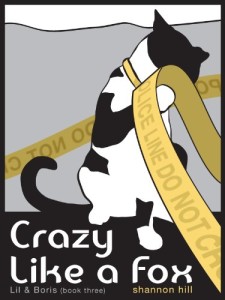I'm going to guess there aren't too many places outside fan fiction where you'll find Supernatural mentioned in the same breath or sentence as Hamlet. Let alone Aristotle, Karl Marx, Immanuel Kant (who's a real pissant), or Thomas Aquinas. Or Simone du Bouvoir. Or many other philosophers.
Just so we're clear: yes. I mean *that* Supernatural.
Not the idea of the supernatural, or defining the supernatural, though I think a great many philosophers have covered that ground.
For that one person who is reading this review and now scratching their head, I present to you Supernatural and Philosophy: Metaphysics and Monsters...for Idjits. Which isn't that bad an introduction to certain basic concepts in philosophy.
I'm really not kidding.
The Blackwell Philosophy and Pop Culture series keeps drawing me back, and they're pretty much my only experience with philosophy at all (I'm familiar with literary criticism, so I got some from that context). Partly because the subtitles keep amusing me. Partly because I want to know how the authors are going to convert the apparently ridiculous to the oddly sublime. And because there are far worse ways to learn a thing or two.
Metaphysics and Monsters...for Idjits is broken down into four sections, each with several chapters; there's "Of Monsters and Morals", which begins with what a "moral monster" might look like (Sam Winchester without a soul does *not* meet the criteria), and ends with an exploration of the value -- and plausibility -- of Team Free Will.
And then there's "Life, Liberty and the Apocalypse", which provides several philosophical looks at both Hell and Crowley -- according to Chapter 6, Hell is a Democracy, as opposed to Heaven's dictatorship.
Other essays in this section examine the Winchester boys and Hunters in general from a chivalry/masculinity perspective (unsurprisingly, for those who know anything about chivalry, both boys represent that chivalric ideal to greater and lesser degrees), and compares the Supernatural episode "Jus in Bello" with George Romero's Night of the Living Dead.
"Evil by Design" comes next, which...mostly covers God, including a very rational discussion of how angels in the Supernatural universe can legitimately (like Uriel), be atheists.
And, naturally (I suppose), the text ends with a section titled "It's Supernatural"; the nature of what is "supernatural", and Love, Supernatural-style.
Speaking just for myself, I would have liked to see a few more feminist readings or colonialist readings addressing some of the more problematic aspects of Supernatural, but I suppose that would be a book titled "Supernatural and Literary Criticism." And, I can admit it: the show's writing probably won't hold up well to that kind of scrutiny.
Overall, though, what I liked best about the book -- in addition to the opportunity to go digging through Supernatural .gifs -- is the careful, sober way the authors look in-depth at a TV show that's been called "Scooby Doo for adults." Whether you like, love, hate, or are utterly indifferent to Supernatural, if you're interested in the intersection of pop culture and philosophy, I recommend this series in general, and this book in particular. Go on, learn something.
If you're interested, please jump over to Cannonball Read to buy, and raise a little money for cancer while you're at it.












